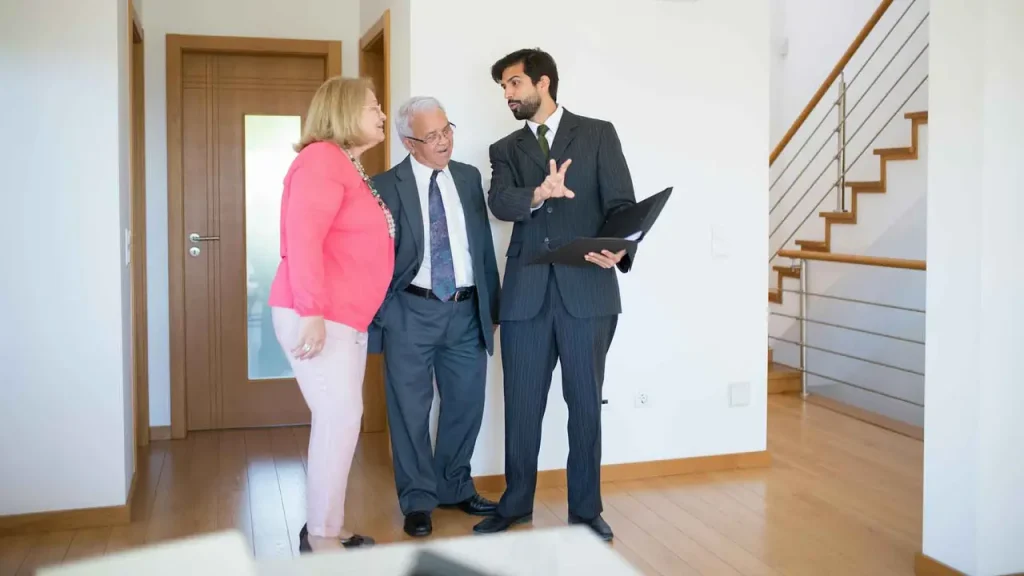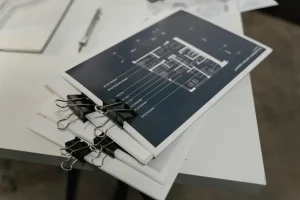
How to Choose an Estate Agent and Their Role A Complete Guide
Selling a house. It sounds straightforward, doesn’t it? Put a sign up, people come, they buy. If only it were that simple. The reality is a chaotic whirlwind of valuations, viewings, negotiations, and endless paperwork. And right at the centre of that storm is one person who can either be your calm, guiding light or the source of the entire hurricane: your estate agent. The entire process of learning what an estate agent does and how to pick the right one can feel like a full-time job before you’ve even started. It’s probably the most crucial decision you’ll make in your entire property journey, yet so many people rush it. They pick the first agent who quotes the highest price, or the one with the flashiest office. Big mistake. This guide is here to change that. We’re going to dive deep into what these professionals actually do and, more importantly, how you find a great one. The difference between the right and wrong agent isn’t just a few thousand pounds; it’s your sanity.
The Essential Guide to Choosing and Understanding Your Estate Agent
Getting to grips with this process is the foundational first step. Don’t skip it. It involves more than just a quick search online for local names; it’s about understanding the partnership you’re about to enter. This is a professional relationship that will dominate your life for the next few months, so you better make sure you’re compatible. You need someone who not only understands the market but also understands you and your goals for the sale. This initial phase of education is critical, setting the stage for a smoother, more profitable transaction. Without this knowledge, you are essentially navigating a complex financial and legal maze blindfolded. Seriously.
Decoding the Comprehensive Role of an Estate Agent in Property Sales
So, what exactly are you paying them for? It’s a fair question, especially when you see the commission figures. Answering what is the main role of an estate agent is key. It’s not just about showing people around your house. Their responsibilities are vast and varied, covering marketing, sales, negotiation, and administration. A proper understanding of their role means appreciating the complexity of the job.
Beyond the Basics: What an Estate Agent Truly Does
Forget the stereotype of a flashy suit and a fast car. A great agent is a master project manager. They coordinate photographers, floor plan designers, and energy assessors. They craft compelling property descriptions designed to hook buyers from the very first sentence. They are also your buffer, fielding the tyre-kickers and time-wasters so you don’t have to. I remember one agent I worked with who could spot a non-serious buyer from a mile away just by the questions they asked. That skill alone saved me hours of pointless tidying and awkward conversations. This is part of the job that often goes completely unnoticed by the seller, but it is immensely valuable.
Core Responsibilities: From Valuation to Closing the Deal
Let’s get specific about the duties and responsibilities of an estate agent. It starts with the valuation. A good agent won’t just pluck a figure from the air to flatter you; they’ll present a meticulously researched appraisal based on hard data and recent comparable sales. Then comes marketing: professional photos, online portal listings, social media campaigns, and tapping into their database of registered buyers. They manage all viewing appointments, provide you with constructive feedback, and handle the nerve-wracking negotiation process. Once an offer is accepted, their job isn’t over. They become a sales progressor, liaising with solicitors on both sides to push the sale over the line. For many, understanding the full scope of their work begins right here.
How Agents Navigate the Complexities of Property Transactions
Property sales are messy. Chains collapse. Surveys reveal hidden horrors. Buyers get cold feet. A skilled agent is an expert problem-solver. They are the calm voice on the phone that talks a nervous first-time buyer off the ledge or finds a creative solution to a complex legal issue holding up the chain. Their ability to manage these hurdles, to mediate between anxious sellers, demanding buyers, and slow-moving solicitors, is perhaps their most underrated and vital skill. Navigating these complexities is central to their role in your success.
The Critical Impact of Selecting the Right Estate Agent
The choice you make has enormous consequences. It directly impacts your final sale price, the time it takes to sell, and your overall stress levels throughout the process. It’s not an exaggeration to say that getting this decision right is half the battle won. The wrong agent can leave your property languishing on the market, costing you money and momentum. It’s a critical moment.
Maximizing Your Sale Price and Minimizing Market Time
A top-tier agent possesses a combination of shrewd pricing strategy and aggressive marketing that creates a competitive environment for your property. They know how to generate a buzz. This often leads to multiple offers, giving you the power to negotiate from a position of strength and achieve a price that exceeds your expectations. They understand that time is money; the longer a property sits, the more stale it becomes. Their entire strategy is geared towards achieving the best possible price in the shortest possible time. Choosing the right agent is really about maximizing your return.
Avoiding Common Pitfalls with an Underperforming Agent
An underperforming agent is a nightmare. They overvalue your property just to win your business, leaving it to stagnate on the market for months before sheepishly suggesting a price drop. They communicate poorly, leaving you in the dark for weeks on end. They conduct lazy viewings, failing to highlight your home’s best features. And they are often poor negotiators, too quick to advise you to accept a lowball offer just to get their commission. These pitfalls are real, and they can turn your selling experience into a disaster. Knowing how to choose an estate agent properly is your best defence against these scenarios.
Your Step-by-Step Process for Choosing an Exceptional Estate Agent
Alright, let’s get down to brass tacks. You need a plan. A methodical approach. This isn’t a decision to be made on a whim. The best way to choose a good estate agent for selling is by treating it like a recruitment process. Because that’s exactly what it is. You are hiring a key professional for a very important, high-stakes project. The selection process should be deliberate and thorough.
Thorough Research: Finding Local Agents with a Strong Reputation
Start by creating a shortlist of three to four agents. Look at who is successfully selling properties like yours in your immediate area. Check their online reviews, but with a critical eye. A few negative reviews aren’t necessarily a deal-breaker if they’ve been handled professionally. Ask for recommendations from friends and neighbours. Your goal is to find agents who are active and respected in your local patch. An agent with true local property market knowledge is worth their weight in gold.
Conducting Interviews: Essential Questions to Ask Potential Agents
This is the interview stage. Don’t let them just run through a glossy presentation. You are in charge. You need to prepare some sharp questions to ask when interviewing estate agents. Ask them to justify their valuation with specific, recent examples. Ask about their marketing strategy for your specific home. What makes their approach different? Ask how often you can expect to hear from them. Who will be your primary point of contact? How many other properties are they currently handling? This is where you separate the pros from the amateurs.
Understanding Estate Agent Fees and Commission Structures
Let’s talk money. You must have a clear grasp of estate agent fees and commission structures. Most agents charge a percentage of the final sale price, typically ranging from 0.75% to 2.5% plus VAT. Some may offer a fixed fee. Don’t just go for the cheapest—it’s often a false economy. A better agent who charges a higher commission could achieve a much higher sale price, netting you more in the end. There is often room for negotiating estate agent fees effectively, especially if you are a desirable client. Clarifying the fee structure is a non-negotiable part of the process.
Decoding the Contract: What to Look for Before You Sign
Read the small print. I repeat: read the small print. The agency agreement is a legally binding document. The key things to check are the commission rate, the length of the tie-in period, and the type of contract (e.g., sole agency, multi-agency). Answering what should an estate agent contract include is vital: it must clearly state all costs, the notice period required, and any definitions of what constitutes an ‘introduction’ of a buyer. Gaining clarity on the terms and conditions now prevents painful disputes later.
Key Factors to Prioritize When Evaluating Estate Agents
When you’re comparing your shortlisted agents, certain attributes should carry more weight than others. It’s easy to be swayed by a slick pitch or a tempting valuation, but you need to look deeper. The real value lies in their expertise, their strategy, and their service. A comprehensive evaluation requires this level of detail.
Local Market Expertise and Proven Experience
You want an agent who lives and breathes your local market. They should know the sold prices of the houses on your street without looking them up. They should know the buyer demographics for your area. The deep local property market knowledge an agent brings is invaluable for pricing correctly and targeting the right buyers. Experience is also crucial; an agent who has weathered different market conditions will be far more adept at navigating challenges. When deciding on an agent, prioritise local expertise.
Effective Marketing Strategies and Broad Reach
A sign in the garden is not a marketing strategy. A truly effective plan involves high-quality professional photography, detailed floor plans, and engaging property descriptions. The agent should be leveraging major online portals, their own website, and social media to maximize exposure. Ask to see examples of their current marketing for other properties. Is it impressive? Does it make you want to view the home? If not, it won’t impress buyers either. A key part of your decision is judging their marketing prowess.
Communication Style, Transparency, and Availability
This is huge. And it’s personal. You need an agent whose communication style works for you. Do you prefer phone calls, emails, or texts? How often do you want updates? A good agent will establish these preferences from the start. The importance of communication with your estate agent cannot be overstated. Transparency is equally critical. You want honest feedback from viewings, even if it’s hard to hear. You need to know that your agent is being straight with you at all times. Their availability is a clear indicator of the service you’ll receive.
Client Testimonials, References, and Online Reviews
Don’t just take their word for it. Do your due diligence. Read online reviews across multiple platforms. But go a step further: ask the agent if you can speak to one or two of their recent clients. A confident agent with a history of happy customers will have no problem with this. This provides social proof and backs up everything they’ve promised you in the interview. This is a vital step in the selection process.
Cultivating a Successful Partnership with Your Chosen Agent
Once you’ve signed on the dotted line, the work isn’t over. Now it’s about building a strong, collaborative relationship. This partnership is a two-way street. Your cooperation and communication are just as important as theirs. The success of your sale depends on how well you work together. This is the final piece of the puzzle.
Maintaining Open Communication for a Seamless Experience
Keep the lines of communication open. Provide your agent with all the information they need and be available to answer questions. If you’re going to be unreachable, let them know. A quick weekly check-in call can keep everything on track and ensure you both feel in the loop. The process of selling is smoother when everyone is on the same page.
Setting Clear Expectations and Providing Necessary Information
Be clear about your expectations from the outset. What are your timeline goals? What is your absolute bottom-line price? The more information your agent has, the better they can serve you. Provide them with details about the property, recent upgrades, and even neighbourhood perks. You know your home best; your insights can help them sell it.
Addressing Challenges: When to Seek Resolution or Reassessment
Sometimes, things go wrong. If you’re unhappy with the service, you need to address it early. Schedule a meeting to discuss your concerns calmly and professionally. A good agent will take your feedback on board and work to resolve the issue. If things don’t improve and you feel the relationship has broken down, review your contract to understand your options for changing agents.
Making an Informed Decision for Your Property Journey
Ultimately, choosing a good estate agent for selling is about making a smart, informed business decision. It’s not about emotion. It’s about research, due diligence, and asking the right questions. By taking control and investing time to find the right partner, you are setting yourself up for a less stressful, more profitable sale.
You’re not just selling a property; you’re moving on to the next chapter of your life. Choose an agent who will make that transition a successful one. Their guidance, from the initial valuation to the final handover of keys, is critical, so ensure you have the best person for the job on your team.






